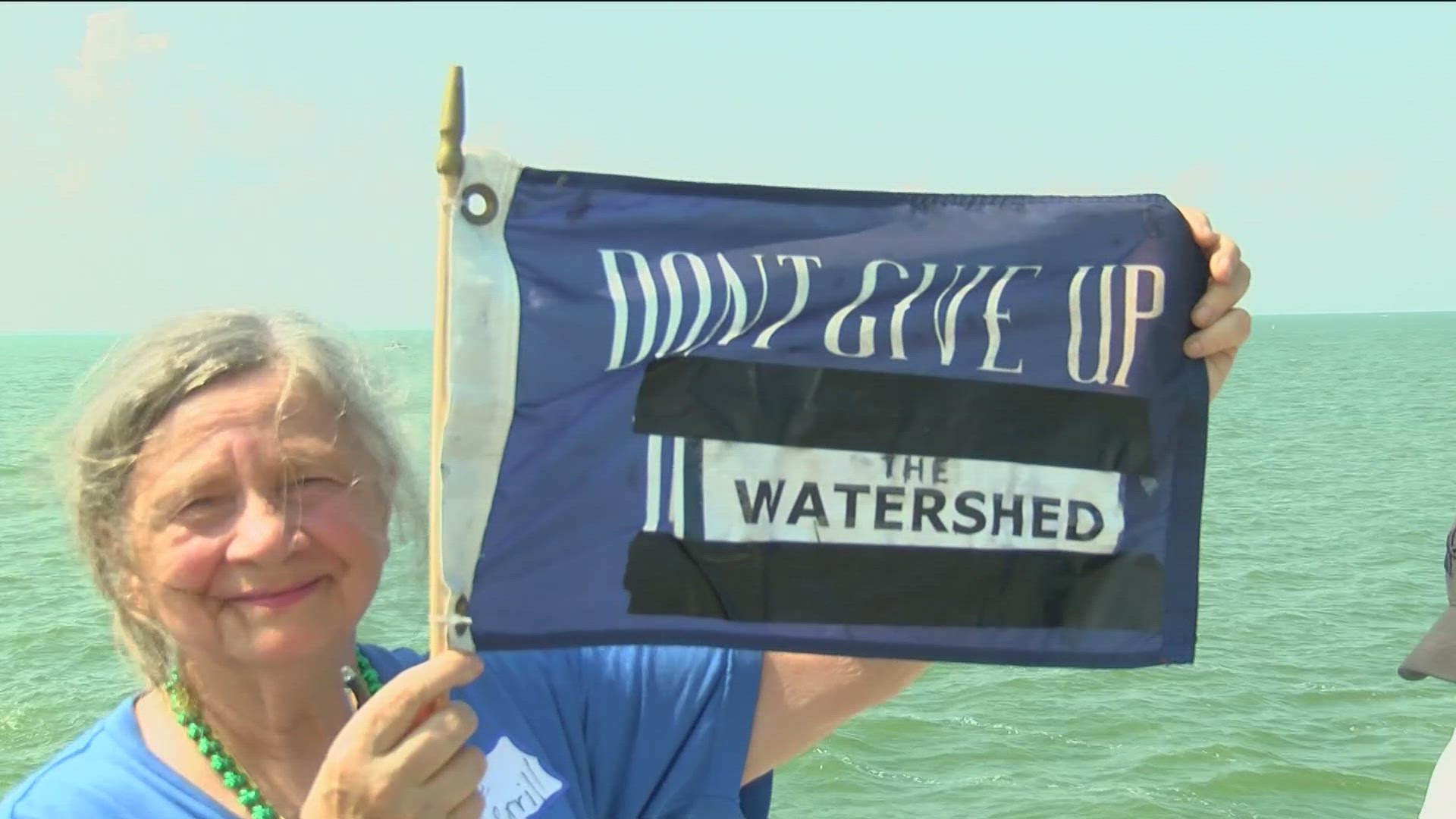LUCAS COUNTY, Ohio — This year marks 10 years since the water crisis in northwest Ohio.
Roughly half a million customers use the Lake Erie water system and 10 years ago this week, none of them could drink a drop of it, due to a toxic algal bloom completely surrounding the region's intake crib.
"As a result, the city had to turn down, turn off the water for three days," Toledo Mayor Wade Kapszukiewicz said. "And it was a traumatic event for everyone."
While Kapszukiewicz was not mayor at the time of the water crisis, he did experience it first-hand and the effects that followed after.
"The billions of dollars to fix the intake is not the problem," Janine Middlesworth, an advocate for a clean Lake Erie, said.
Middlesworth said that now, ten years later, the EPA still isn't addressing the root cause.
"They're throwing away money and not dealing with the real issue, which is getting sewage from factory farms," Middlesworth said.
By not solving the issue of runoff, people like Luna Pier Mayor Jim Gardner say now it impacts their businesses and tourism.
"It hurts us economically when people don't visit. We really rely on the tourism as part of our funding for the city," Gardner said. "Without that, if we really pay a price, the algae bloom hits us."
Granted, there has been some progress.
"There's no question we have a lake water problem," Kapszukiewicz said. "We no longer have a drinking water problem like we did 10 years ago and that's because over the last 10 years, the citizens of Toledo have reached into their pockets for almost $500 million, almost half a billion dollars, to make the improvements at our water treatment plant necessary to make sure that this water from a polluted source is drinkable."
Kapszukiewicz said there are some possible solutions.
"Imposing any meaningful regulation or restriction on these mega-farms and the manure they produce is all that we need to have," Kapszukiewicz said. "That's all. If we did that, we would see less algal blooms and our lake would be in better condition."
It was a sentiment echoed by his fellow mayor.
"We're all in this together, we all share the same lake. Four states and two countries," Gardner said. "So we need to do our part to keep it clean."
MORE FROM WTOL 11 NEWS:

